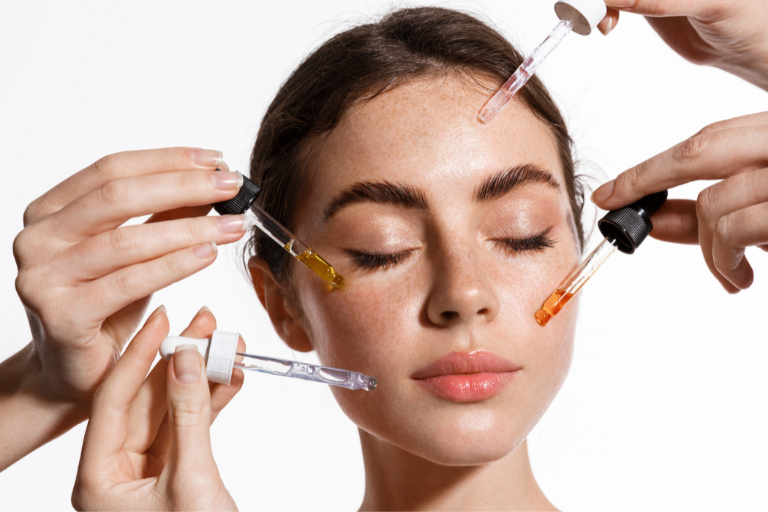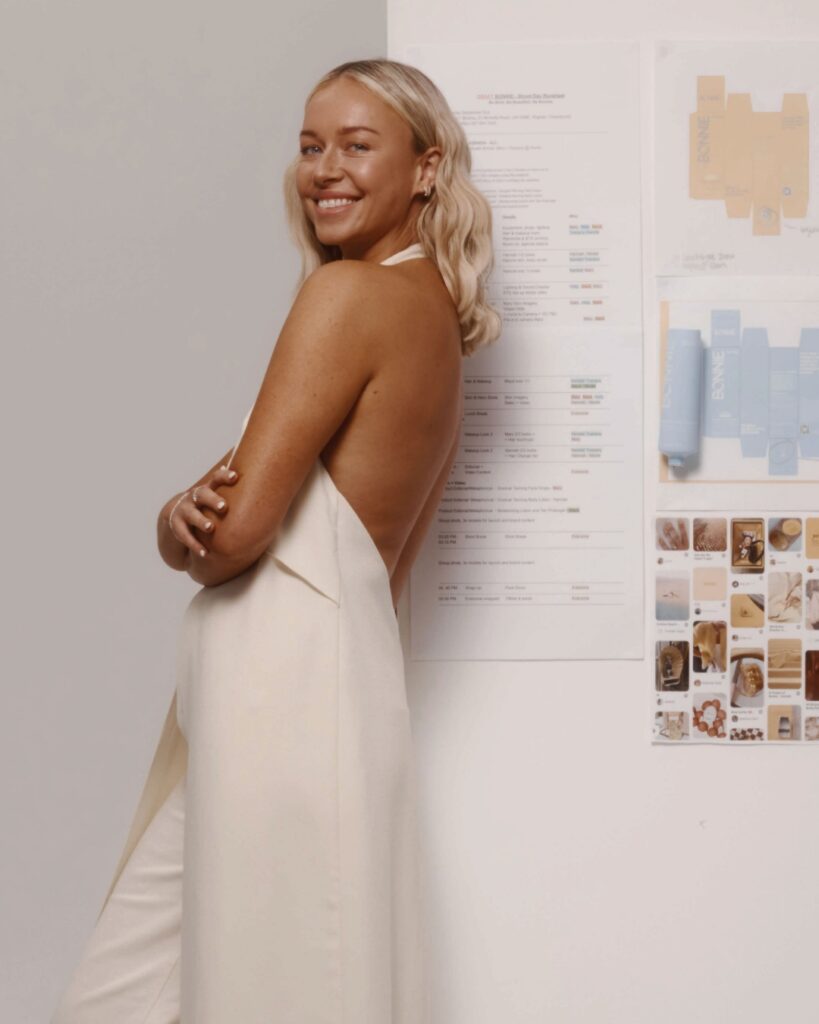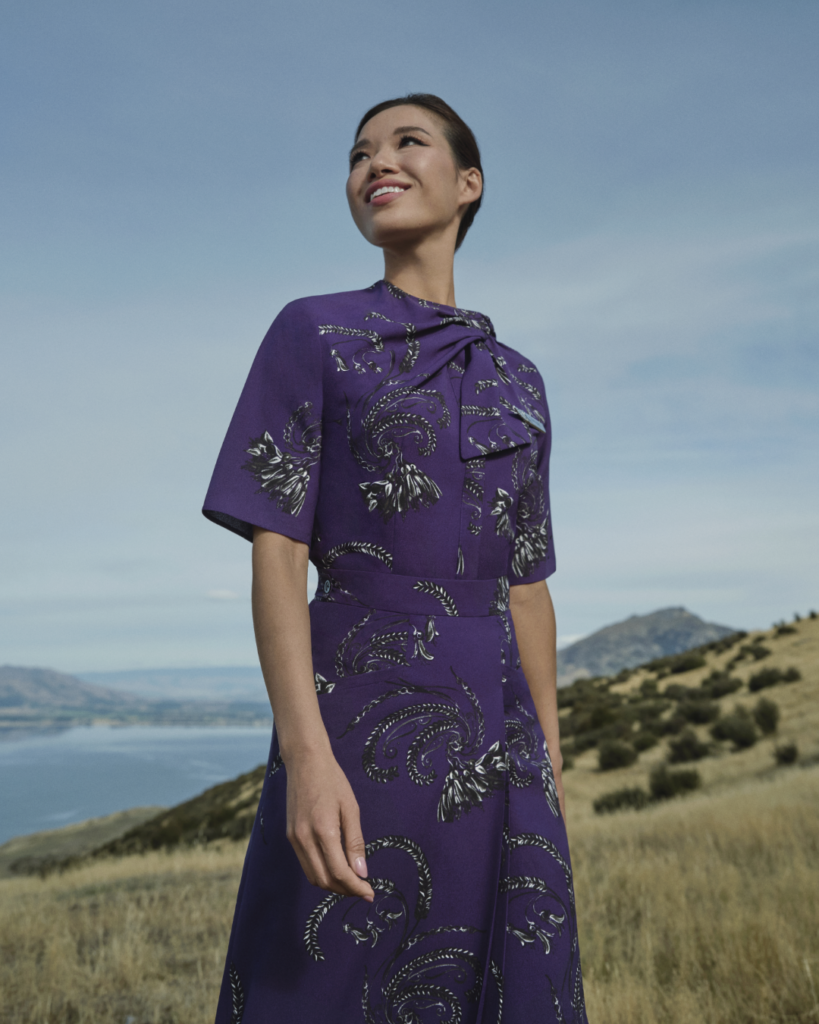
If you’ve ever been confused about what’s written on the back (or front) of a skincare product, you’re not alone. Even the most dedicated skincare enthusiasts can struggle to interpret the jargon, clever marketing spin, and symbols on labels, not to mention lengthy or unknown terms.
Thankfully, cosmetic chemist and founder of Australian skincare brand Biologi, Ross Macdougald, shares his take on how to decode the products on your beauty shelf.
Non-comedogenic
A widely-used term in the skincare industry, few people know what it means. “Non-comedogenic” refers to the absence of ingredients that are known to clog up pores, therefore reducing the likelihood of acne and breakouts. If you’re prone to pimples, reaching for a non-comedogenic product is a great choice.
Natural or naturally derived
Although we’re increasingly becoming mindful about what we’re putting on our skin, it’s essential to consider what “natural” or “naturally derived” really means. While a product may include these terms, this doesn’t mean that it’s truly natural, because synthetic ingredients can still be present.
When it comes to ‘naturally derived’, the product likely contains ingredients that once came from nature but have been altered to the point where they are no longer natural. While this is not necessarily a bad thing, if you want to understand what the product really contains, in particular, any harmful synthetics, research each of the ingredients listed.
Dermatologist approved
We all want to use products approved by the experts, but there is no standardised testing or formal accreditation for a product to be “dermatologist approved or tested”. Typically, a brand will pay a dermatologist to approve a product, which raises questions around credibility and ethics.
It’s also important to remember that everyone’s skin is different, so while a “dermatologist approved” product may work for a friend, this doesn’t necessarily mean that it will work for you. To tell if your skin has reacted to a product, look for signs of inflammation or irritation such as redness, itching, or raised bumps.
Fragrance
Brands do not need to disclose the ingredients used to fragrance a product, often a mixture of chemical components. If you are after a fragrance-free product, make sure to steer clear of products marked with “natural fragrance” or “essential oils”. Sometimes, these fragrances contain skin sensitisers that can irritate your skin.
Alcohol
Alcohol comes in many forms and has a variety of names, meaning you may not realise you’re putting alcohol on your skin. One alcohol-based ingredient you are likely aware of is ethanol, which can cause drying.
Other alcohols to look out for include cetyl and cetostearyl alcohol, which bind water and oil components of a formula. However, these alcohols can often do too great a job of binding, meaning they don’t release the active ingredients into the skin, minimising the product’s efficacy.
Parabens
Parabens are a group of chemicals used as artificial preservatives, primarily to prolong shelf life and prevent bacteria or mould growth.
Due to the concern that parabens are linked to a number of conditions like hormone disruption, acne, and skin ageing, many products are now paraben-free or contain low levels only.
If you are looking to avoid parabens, watch out for ingredients ending with the word paraben, including methylparaben, butylparaben, ethylparaben, and propylparaben.
Hypoallergenic
A generic phrase, “hypoallergenic” means that the product causes fewer allergies than competing products that don’t make the same claim. However, ‘hypoallergenic’ is not a regulated term. There is also no guarantee that you won’t experience skin irritation.
Suppose you do have particularly sensitive skin, and hypoallergenic products are causing irritation. In that case, I recommend you visit a dermatologist who can get to the root of the problem by testing your skin.
Free from
While it’s great to identify any controversial ingredients that products are “free from”, this can shift the focus from what’s actually in the product, becoming a clever marketing ploy. It’s still important to do your research — Google can be your best friend!
Ultimately, it’s easy to get hung up over cult products, beautiful packaging, pseudoscientific claims or celebrity endorsements instead of the actual product. When making your next skincare purchase, my advice is to consider why you are buying the product, and check out the ingredients.
Cosmetic chemist Ross Macdougald created Biologi to take the confusion out of purchasing skincare, using cutting-edge science to formulate 100% active serums that include phyto-actives and micronutrients pulled directly from plants.
In the mood to learn more? Here’s the ultimate guide to layering your skincare products.










